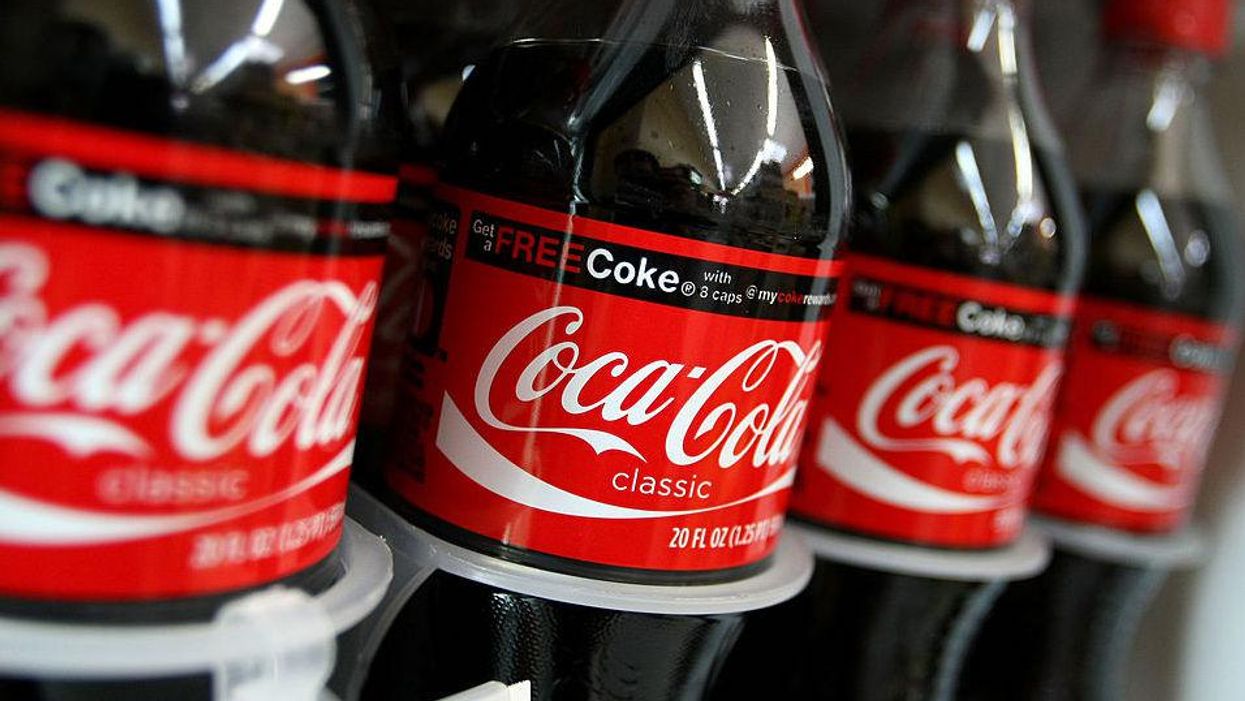
Justin Sullivan/Getty Images

'... we need to get serious about addressing health inequities'
Lawmakers in the nation's capital are proposing enacting a new tax on sugary drinks, hoping that forcing consumers to pay more for products they want will deter them from consuming sugary beverages.
Democrat Brianne Nadeau, a member of the Washington, D.C., city council, introduced a measure Tuesday that would enact an excise tax of 1.5 cents per ounce on beverages the city government considers "sugary drinks."
The legislation would repeal an existing 8% sales tax on sugary drinks, which is 2% higher than the existing sales tax in Washington.
Enacting the sugary drink tax would "begin rectifying longstanding health inequities made even more apparent by the COVID-19 pandemic."
"One thing that COVID-19 has made abundantly clear is that we need to get serious about addressing health inequities in the District," Nadeau said in a press release.
Mary Cheh, a council member who sponsored the bill, told WTOP-TV, "This excise tax would go right on the product. Thereby making it apparent to the purchaser that it is more expensive than it was."
Additionally, the legislation seeks to address "chronic diseases associated with the consumption of sugary drinks," childhood obesity related to the chronic consumption of sugary drinks, and homelessness in Washington.
The press release explains:
The legislation takes important steps toward providing equitable access to nutritious food for District residents experiencing homelessness by requiring that meals served at the District's shelters and transitional housing are consistent with the Dietary Guidelines for Americans, and by applying greater oversight over food service vendors. It also establishes grants to support nutrition education, cooking lessons, and gardens at family shelters and transitional housing to create healthy environments.
District lawmakers first considered the sugary drink tax in 2019, but the proposal ultimately failed.
Nadeau claimed similar taxes — such as those enacted in Philadelphia or Berkeley — are evidence of their success.
However, multiple studies discovered that, while sales of sugary drinks decrease in cities that levy the per ounce excise tax, sales in neighboring municipalities simultaneously increase, indicating that residents impacted by sugary drink taxes still buy sugary drinks — they just travel to get a cheaper deal.
Philadelphia, for example, became the second U.S. city to enact a sugary drink tax in 2017. Medical journal JAMA found that sales of sugary drinks tumbled 51% during the first year of the tax, but sales increased in towns and counties adjacent to Philadelphia, at least partially offsetting the decrease in Philadelphia sales.
Research conducted by the National Bureau of Economic Research came to the same conclusion.
However, the NBER also concluded that Philadelphia's sugary tax drink did not positively impact the overall health of adults or children.
"The tax did not have a substantial effect on the frequency of adults' consumption of other beverages. We generally do not find detectable effects of the tax on children's consumption of beverages," researchers said.